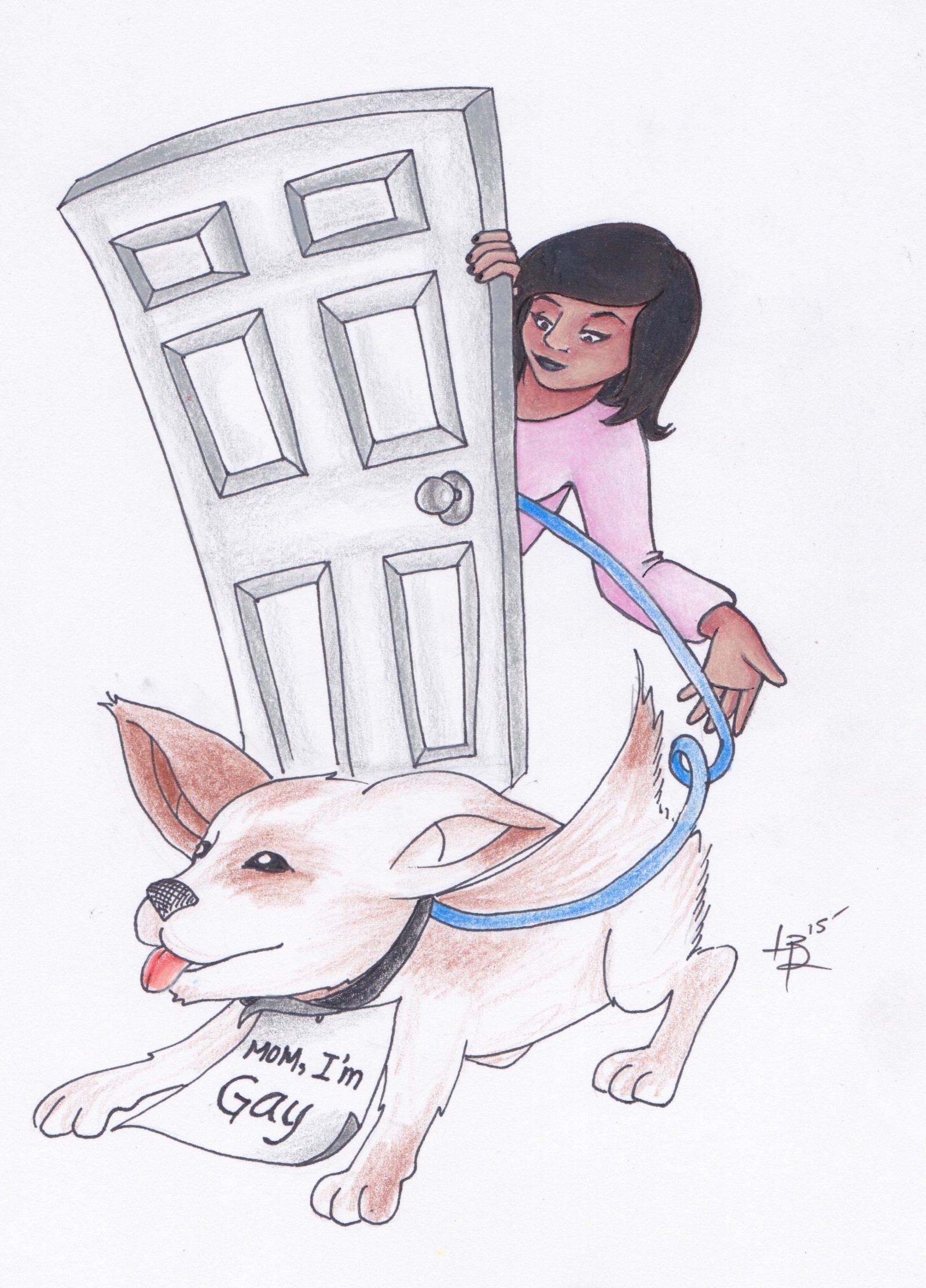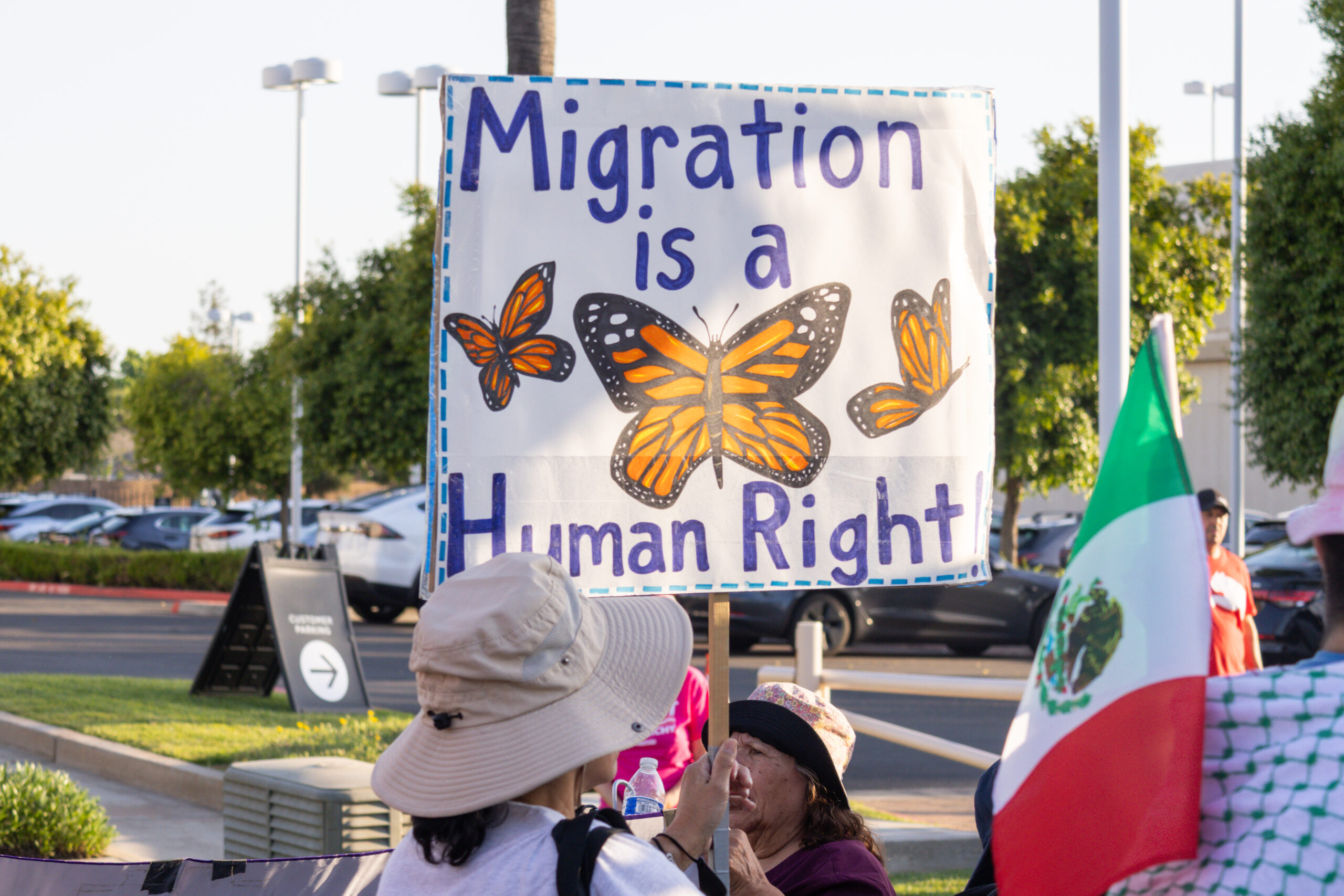
Lots of things are kept in closets: old clothes, umbrellas, and shoes. But one thing that should not be kept in the closet is your sexuality.
From a young age I knew that I was not like all the other kids. When I was 13, I spoke to a friend about it. She thought that I was a lesbian, but I knew that wasn’t the whole truth.
I liked both boys and girls. A year later I realized that I was bisexual.
It took a while for me to understand, but I knew I had to tell the most important person in my life: my mom. I knew in the past she said she wouldn’t care if I were gay but it was still scary and took courage.
One night when I was 14 I decided it was time to come out, but I didn’t know how to tell my mom.
Then my dog Locs came into my room and it hit me: he could be my delivery owl… or delivery dog.
Locs sat next to me as I wrote out what I was feeling. Then I folded the letter, attached it to my dog’s collar for him to take into the other room where my mom was. As I sat there it felt as if my stomach was in my throat and the seconds that passed felt like years.
About a minute later my mom walked in. There was nothing wrong with her facial expression, it was just her normal everyday facial expression. She sat down next to me and told me that what I said in the note didn’t bother her and that she still loved me.
That was my experience, but unfortunately some people don’t have that privilege and don’t get the acceptance I did.
Michael Knote, who founded the Facebook page “Have a Gay Day,” which has over 730,000 likes, told me in an email that he “never came out, it was just known.”
“My dad was okay, but my mother took a bit of time,” he says.
Knote believes that the decision to formally come out is a personal one that doesn’t work for everyone.
“There is nothing that requires that you must come out,” says Knote. “Coming out is something that works differently for everyone. First, don’t do it if it could put you at risk, as far as harm or [your] health or even being homeless.”
Parents, Familes, and Friends of Lesbian, Gay, Bisexual and Transgender People (PFLAG) reports that around half of gay males experience a negative parental reaction when they come out and in 26 percent of those cases, the youth was kicked out of their home. Studies indicate that between 25 percent and 50 percent of homeless youth are LGBT and on the streets because of their sexual orientation or gender identity.
Knote stressed that, “there is a time and place for everything. If you find safety in your Narnia or closet, then find that safety.” For those who do come out, he adds, it doesn’t always mean telling everyone about your sexuality. It could be just telling one person.
“If you find someone to talk with about it then tell them [what] you are comfortable with. Many people tell their pets first because they are non judgemental,” says Knote.
This was true of my experience. My dog Locs was my best friend and helped me to figure out who I was as a person. He listened without judging. Then, when I was ready, he helped me tell my mom.
Knote offered advice for young people wishing to come out to family and friends, reminding them that they’re “never alone.”
Knote’s Facebook page gained so much popularity that he created anonprofit organization with the same name, based in Dayton, Ohio, which works to support LGBT youth and adults through various projects, including a crisis line, billboard campaigns, and an outreach center.
“One day we won’t come out, we will just say we’re in love,” he says. “That will be the only thing that matters.”
I was lucky enough to have someone who accepted love in all its forms. I’m looking forward to the day when everyone has that luxury.


